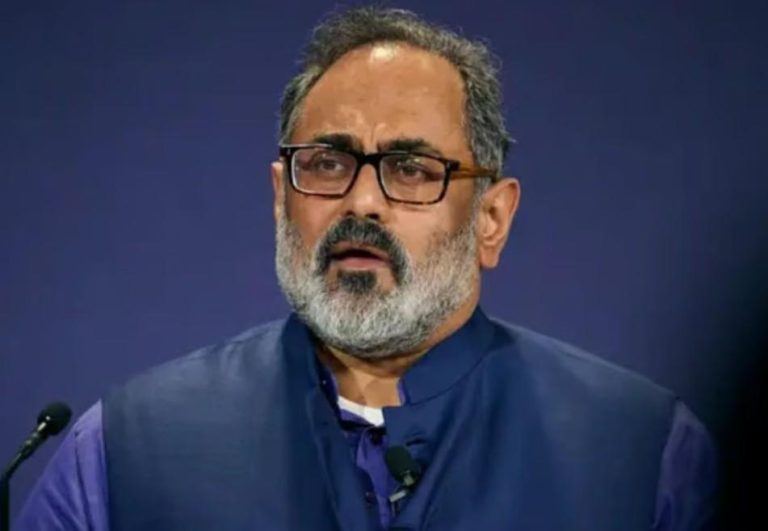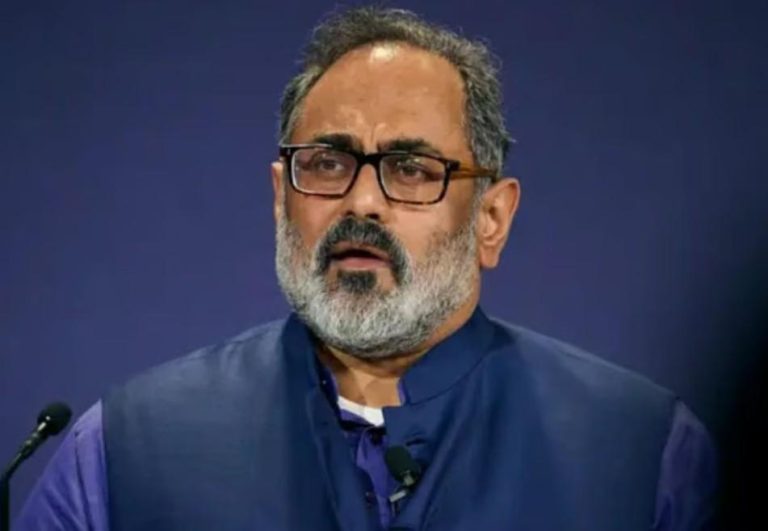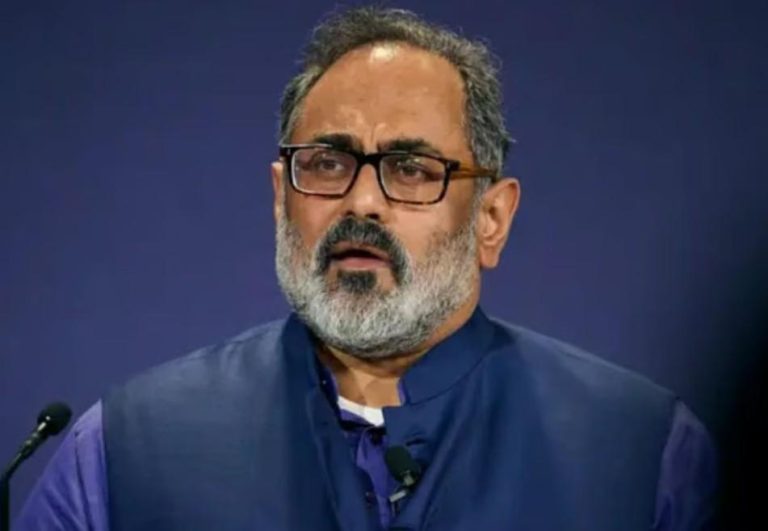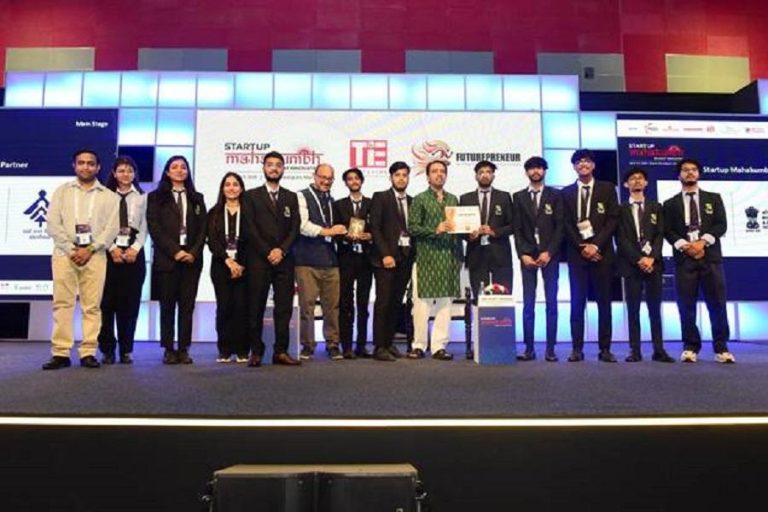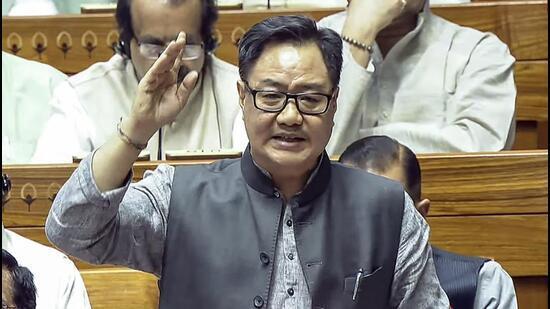
Title: Opposition creates confusion & leaves House: Rijiju in Rajya Sabha
The Rajya Sabha, the upper house of the Indian parliament, has been witnessing heated debates and discussions on various bills and issues lately. However, a recent development has raised questions about the role of opposition members in the House. Union Minister Kiren Rijiju, who was participating in a discussion on the Waqf (Amendment) Bill, criticized senior Rajya Sabha members for creating confusion and raising issues in the House but not staying back to listen to the replies.
The remark was directed at senior Congress leader Kapil Sibal, who had compared the properties of Waqf bodies with those of other religious bodies during the discussion. Rijiju claimed that Sibal’s statement had created confusion and was an attempt to mislead the House. He further stated that such behavior was not expected from a senior member of the opposition and was a reflection of the lack of respect for the House and its proceedings.
It is worth noting that the Waqf (Amendment) Bill is aimed at strengthening the Waqf Board, which is responsible for managing properties donated for religious purposes. The bill seeks to increase the powers of the Waqf Board and provide greater autonomy to the board in managing its properties.
The debate on the bill was marked by strong opposition from several members of the opposition, who claimed that the bill was an attempt to dilute the powers of the Waqf Board and undermine the rights of minority communities. However, Rijiju’s criticism of Sibal’s statement and the opposition’s behavior in general was seen as a reaction to the manner in which the opposition was conducting the debate.
In his criticism, Rijiju said that the opposition was raising issues and creating confusion in the House but was not willing to stay back and listen to the replies. He claimed that this behavior was not only unparliamentary but also reflected a lack of respect for the House and its proceedings.
The opposition, on the other hand, claimed that the government was trying to suppress their voices and silence them on the issue. They claimed that the bill was an attempt to undermine the rights of minority communities and that the government was not willing to listen to their concerns.
The debate on the Waqf (Amendment) Bill is likely to continue in the Rajya Sabha, with both the government and the opposition expected to present their arguments and counter-arguments. The outcome of the debate is uncertain, and it remains to be seen whether the bill will be passed in its current form or if changes will be made to it.
In conclusion, the debate on the Waqf (Amendment) Bill in the Rajya Sabha has highlighted the challenges of conducting meaningful debates in the House. The criticism by Rijiju of the opposition’s behavior has raised questions about the role of opposition members in the House and their responsibility to engage in constructive debates. The outcome of the debate is uncertain, but it is clear that the issue will continue to be a topic of discussion and debate in the coming days.
